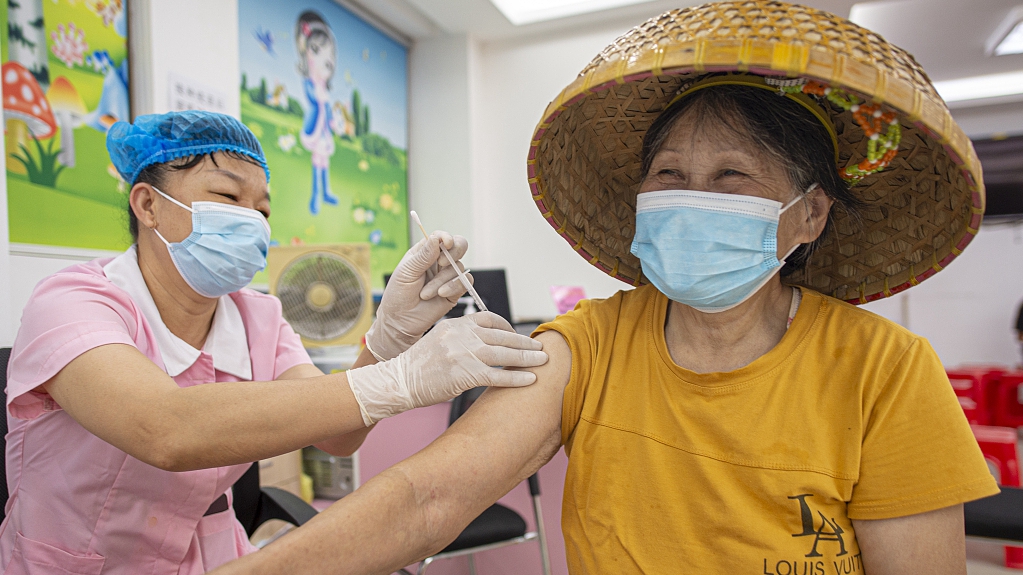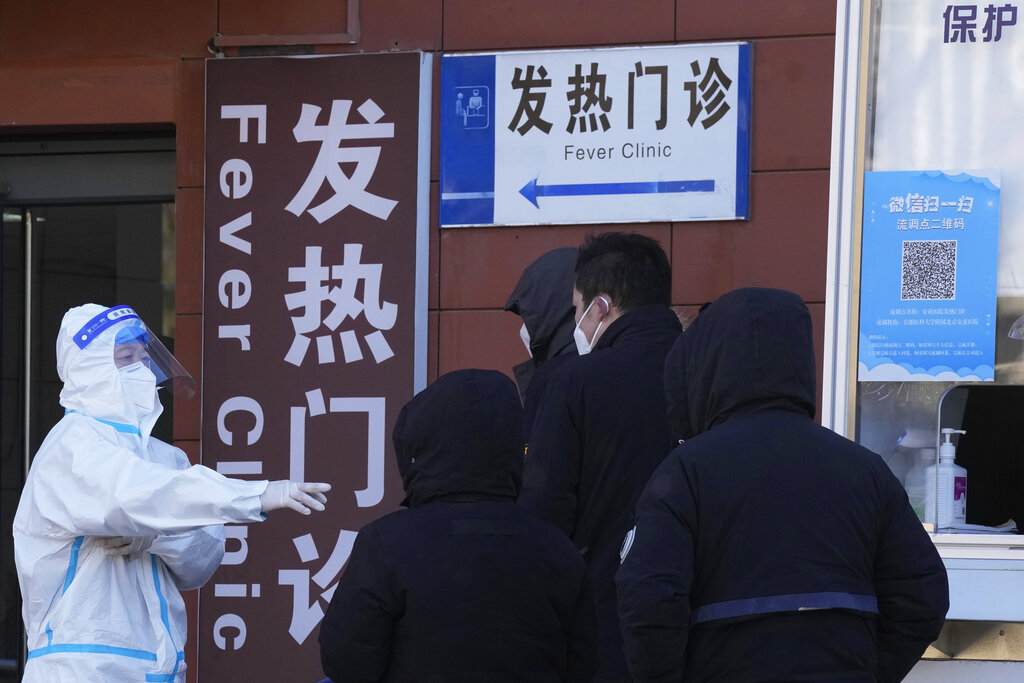The key to overcoming the latest wave of surging COVID-19 cases in China is to protect the vulnerable population and establish an immunity barrier through vaccination, according to a leading Chinese infectious disease expert.
Zhang Wenhong, head of the infectious disease department at Shanghai Huashan Hospital Affiliated with Fudan University urged Chinese people to get vaccinated as soon as possible to ease anxiety in the face of the virus in an article that was made public on an official social media account on Monday.

Zhang Wenhong is a Shanghai-based renowned infectious disease expert. (Photo: Courtesy of Fudan University)
"As COVID-19 makes the transition from a global pandemic to an endemic, this trend shares much in common with the evolution of H1N1 influenza that we experienced in 2009," said the article. "So it is very possible that we will realize pandemic containment someday in the future."
Noting that China is the last major economy in the world to recalibrate virus containment policies, the article said that the country has, thus far, recorded the lowest COVID-19 infection rates and death toll among all countries in the world.
"Studies have found that the prevalent Omicron variant is much milder so it is unlikely to cause long-term harm on human organs. Those who get infected tend to exhibit symptoms similar to other respiratory viral diseases, symptoms of which we can entirely cope with well," the article pointed out.
The article forecasted that China will very likely face a wave of surging cases due to the relaxation of virus control policies. Based on the infection patterns that have been observed in other countries or regions, the article offers some suggestions to the general public, including timely vaccination and the protection of the elderly.
"For the elderly, vaccines can reduce the possibility, as much as 76% to 98%, of being subject to severe symptoms after infection," according to the article.

A 65-year-old receives the second shot of the COVID-19 vaccine in Haikou City, Hainan Province, June 20, 2021. (Photo: CFP)
Senior citizens are the most vulnerable group. Most of them have weakened immunity and underlying conditions which contribute to a high mortality among the demographic. "What is equally important is that we should delay the elderly people's infection to get confirmed cases among the group under control during the peak of the first infection wave so that medical treatment resources will be duly available for those in need," the article added.
China announced to further relax anti-virus rules last week to better balance epidemic control and social livelihoods as the country's National Health Commission made public 10 measures that fine-tuned protocols for nucleic acid testing, quarantine requirements, daily access to medication and medical services, vaccination and risk area classification.
The rapid changes came after the 20 optimized measures announced a month ago to refine China's COVID-19 response.

A worker in protective overalls controls the line outside the fever clinic at a hospital in Beijing on December 10, 2022. (Photo: AP)
The current surge in cases was thus inevitable. In Beijing alone, the number of people seeking medical treatment in fever clinics across the city amounted to about 22,000 on Sunday, up 16 times from a week earlier, according to the capital city's health authorities.
Cities across China have vowed to guarantee steady medical resources for citizens to ensure a smooth fight against the virus. The country's health authorities also encouraged patients with mild symptoms to stay at home for observation and treatment and turn to hospitals if necessary.


